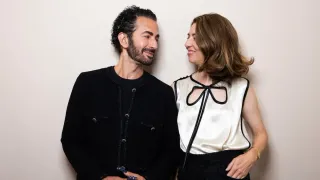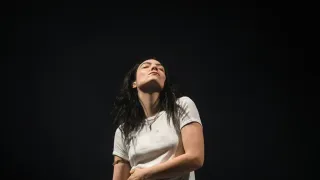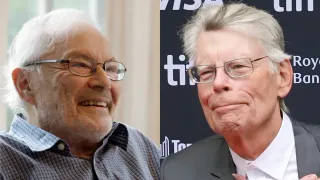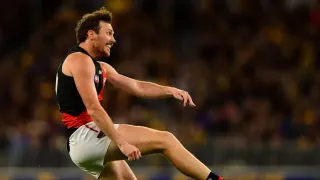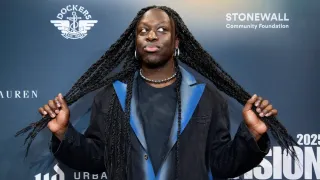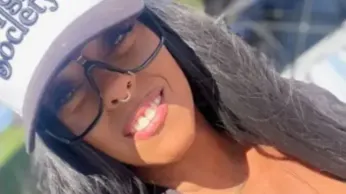
6 hours ago
Beats, Belonging, and Revolution: DJ Maria Maria and the Vibrant Legacy of SisterSpace
READ TIME: 3 MIN.
DJ Maria Maria’s rise from Philadelphia breakdancer to sought-after festival DJ is a testament to the power of music as activism and refuge for LGBTQ+ communities. Her story, recently featured by Philadelphia Gay News, traces a path from grassroots parties to the main stage at SisterSpace, one of the Mid-Atlantic’s longest-running women’s music festivals .
Maria Maria’s earliest events, like the nine-year-running “Apocalipstick,” were born out of necessity and resistance. “It was based around the revolution and the evolution of what women were going through—immigration and stuff like that. This was when Trump came into office the first time. We intentionally placed ourselves in spaces that could be uncomfortable,” she told Philadelphia Gay News .
Facing resistance from predominantly white, male spaces in local gay nightlife, Maria Maria curated events centering women of color, combining poetry, spoken word, live painting, and DJ sets. “We wanted to protect the women of color here,” she explained, emphasizing a carefully curated atmosphere free from artists known to have harmed women, such as Chris Brown and Puff Daddy .
At the heart of her sets is a spirit of empowerment. Maria Maria’s favorite lyric—Lauryn Hill’s “Everything Is Everything”—encapsulates both her musical influences and her drive to build spaces where all queer identities are celebrated and protected .
SisterSpace of the Delaware Valley, now in its 50th year, stands as a beacon for women’s music, culture, and queer community. The annual festival draws hundreds to Maryland for a weekend of performances, workshops, and celebration in a supportive environment open to all women, including transgender women, and nonbinary people .
The festival’s entertainment lineup has always reflected its mission: elevating diverse voices while fostering mentorship and intergenerational connection. For 2025, DJ MariaMaria joins a roster including DJs Kathy G and SheeK, bands like Skip the Needle, and artists from Tangle Movement Arts .
SisterSpace’s history is rooted in the vision of founders like Virginia Giordano, who championed accessible, affirming venues for lesbian, feminist, and progressive women’s music. Giordano’s legacy lives on in the Virginia Giordano Memorial Fund, supporting emerging performers and “behind the scenes” trainees—critical for expanding opportunities for LGBTQ+ artists .
The festival’s ethos is “bottom up politic and very conscientious,” according to longtime performer Holly Near. “The music is the minister, it is the Goddess holding up the whole thing. It’s the magic and the hand to hold as you walk into a place in your life you’ve never been before,” Near told Philadelphia Gay News. The festival is not only a stage for artists but a sanctuary where older lesbians mentor younger attendees, helping build confidence and a sense of belonging that transcends generations .
Maria Maria’s approach to programming, which intentionally uplifts women of color and avoids artists who have harmed women, mirrors SisterSpace’s commitment to intersectionality and safety. These choices respond to the persistent challenges LGBTQ+ people of color face in mainstream queer spaces, where white, cisgender gay men often dominate the cultural landscape .
By foregrounding artists whose music and identities reflect a spectrum of lived experiences, both Maria Maria and SisterSpace nurture spaces where attendees can see themselves represented—not just on stage but in the festival’s structure and values. The festival’s inclusive policies specifically welcome transgender people and nonbinary attendees, fostering a community where all LGBTQ+ identities are affirmed .
For Maria Maria, DJing is an act of activism as much as entertainment. Her events are designed to spark dialogue, build solidarity, and celebrate resistance, whether through dance, spoken word, or live art. SisterSpace amplifies this vision, offering workshops on everything from healing and self-care to activism and intersectional feminism .
The impact is tangible: attendees describe SisterSpace as a place where “confidence is delightful to be around” and mentorship happens organically, with older LGBTQ+ women modeling resilience, creativity, and leadership for younger generations .
As DJ Maria Maria continues to shape the soundscape of queer festivals, her work resonates far beyond the dance floor. Her story reminds us that music is not just entertainment—it’s a catalyst for revolution, healing, and joy. SisterSpace, with its half-century legacy, remains a vital platform for artists and community members seeking belonging and celebration in a world that too often marginalizes queer voices.
For more information on SisterSpace and upcoming events, visit sisterspace.org. To discover more about DJ Maria Maria’s music and activism, read her full profile at Philadelphia Gay News .
